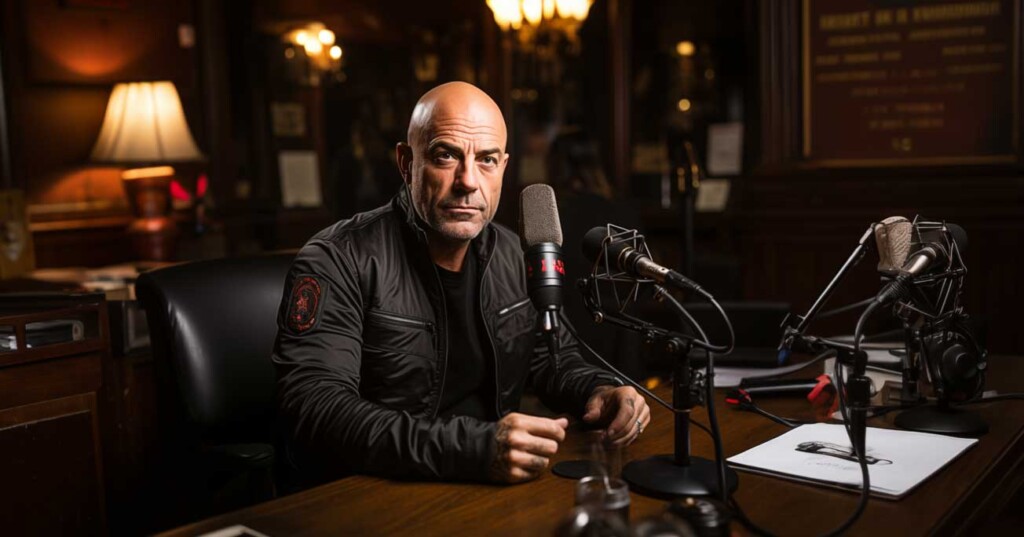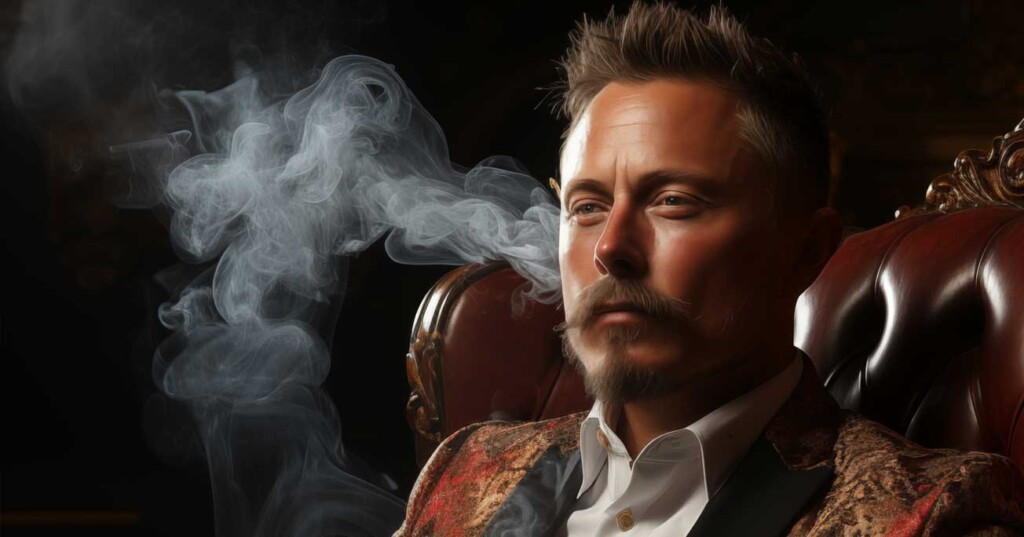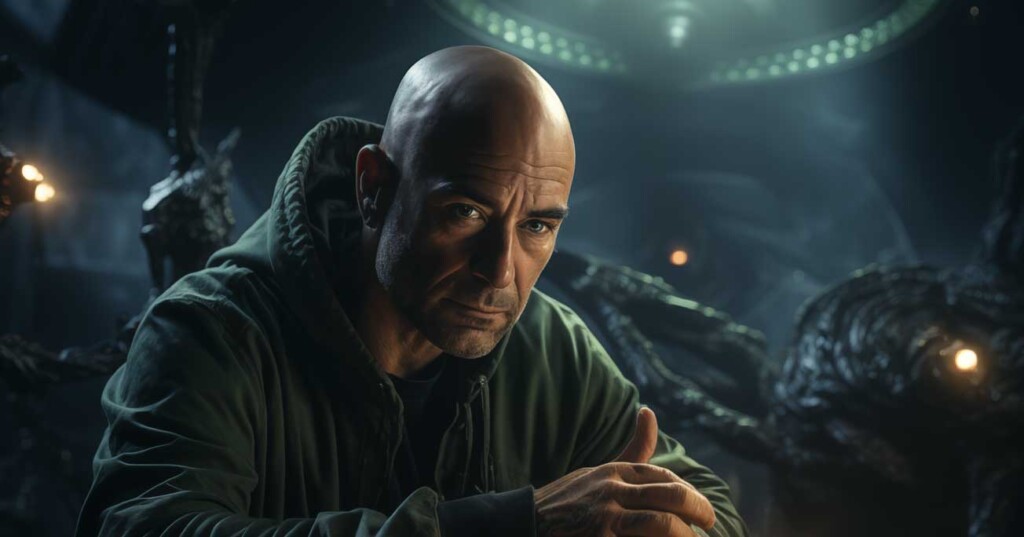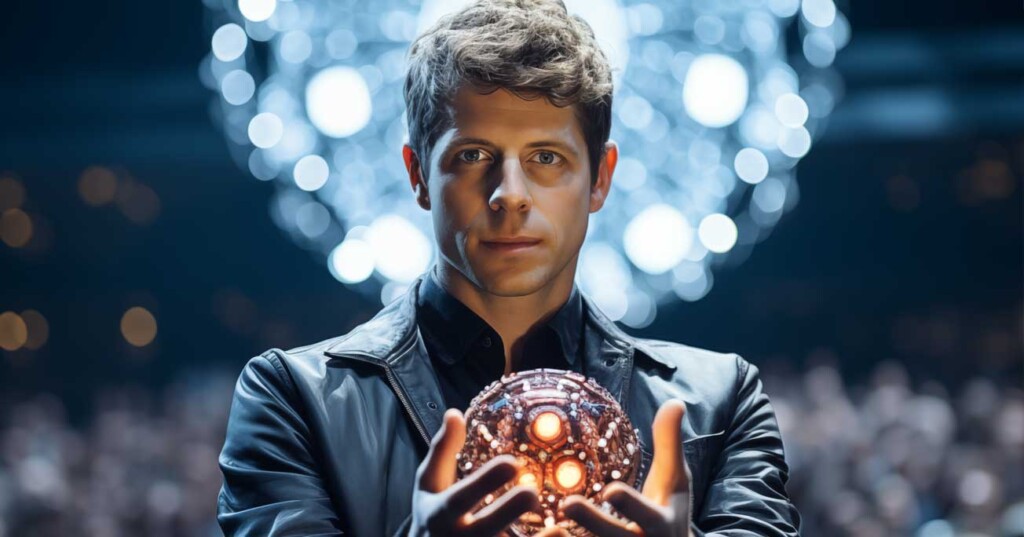
The Joe Rogan Experience Podcast Review
TLDR
The trajectory of the Joe Rogan Experience is inextricably linked to the evolution of media consumption patterns. As we move deeper into the digital era, the podcast’s adaptability
The Joe Rogan Experience
My engagement with the Joe Rogan Experience (JRE) began as it was the first podcast I listened to regularly. Rogan’s brainchild has transformed from a fledgling show into a titan of podcasts, amassing a following that rivals traditional television broadcasts. The allure of the JRE lies in its authenticity and the host’s relentless pursuit of varied perspectives, which has broken the mould of conventional programming.
The podcast’s ascendancy to fame is a chronicle I have followed with keen interest. Joe Rogan’s ability to draw in personalities from all over the globe – from the intellectual rigour of Jordan Peterson to the musings of Alex Jones – has crafted a real mix of human thought. The JRE’s unscripted nature and the absence of commercial breaks create a space where dialogue can unfurl in its most organic form. This feature has captivated my attention and that of countless others.
A Confluence of Eclectic Minds
The essence of the JRE’s success, I believe, is its commitment to diversity and depth. The podcast serves as a meeting place to exchange ideas across various subjects, from neuroscience to martial arts, politics to comedy. This melting pot of discourse has broadened my horizons and served as a beacon for those weary of the one-dimensional narratives in other media channels.
My admiration for Rogan’s interviewing style is fascinating; I have observed that episodes featuring Sam Altman, Elon Musk, and Jimmy Carr are marked by an ability to navigate complex topics with a blend of curiosity and scepticism. This has enriched the public discourse and elevated the standard of what audiences expect from media personalities.

Navigating Controversy
Yet, my perspective on the JRE is nuanced and recognises the podcast’s courtship with controversy. The platform has sometimes been a conduit for contentious voices, providing a stage for discussions that have reverberated beyond the digital sphere into the real world. Episodes featuring guests like Bob Lazar and Commander David Fravor have sparked debates on the limits of content and the ethical responsibilities of a host with such a vast reach.
The JRE’s dalliance with disputed content has compelled me to reflect on the dichotomy between censorship and responsibility. While I staunchly support free speech, I also acknowledge Rogan’s weight of influence. I believe that while everyone has an opinion, the JRE is also responsible for not invoking violence or spreading misinformation to an “I want to believe” population, which reflects a broader responsibility to mitigate the spread of falsehood while safeguarding the essence of open dialogue.
Spotify: A Litmus Test for Modern Content
The podcast’s migration to Spotify was a landmark event, heralding a new phase for digital content distribution. This partnership, valued at approximately $100 million, was a bold affirmation of the podcast’s monumental impact. However, it also ushered in new challenges, including debates over content moderation and platform exclusivity. My sentiments on this strategic move are ambivalent as I am a fan of new media channels challenging the status quo against the establishment.
The Role of Responsibility
The scrutiny that the JRE has faced is emblematic of a larger conversation about the stewardship of influential platforms. The digital age demands a recalibration of how we perceive the dissemination of information. Rogan’s response to criticism, including his decision to bring on more mainstream experts to counteract controversial opinions, indicates the podcast’s adaptive resilience.

When Joe Rogan Met Elon Musk
When Joe Rogan first sat down with Elon Musk on the JRE, the podcastosphere buzzed with anticipation. Two colossal figures, each a titan in their respective fields, met in a setting that promised unfettered conversation. My intrigue was piqued by the prospect of what Musk would share and how his vision would align with Rogan’s inquisitive and wide-reaching style.
I believe the episodes featuring Elon Musk are where innovation meets philosophy. Musk’s first appearance, which famously included his cigar sampling, became an instant internet hit, but the substance of the conversation held my attention. The dialogue traversed through Musk’s ventures: SpaceX’s interstellar ambitions, Tesla’s electric revolution, Neuralink’s neurological breakthroughs, and The Boring Company’s infrastructural innovations.
Musk’s candidness on the JRE allowed me to appreciate the intricacies of his thought process. His discussions about the potential futures of AI and humanity’s role were not just speculative musings but reflections grounded in real-world aspirations and concerns. Rogan’s ability to steer these conversations, probing without pandering, challenging without antagonizing, provided a rich soil for Musk’s ideas to take root.
What resonates with me most is how Rogan and Musk’s conversations underscore the potential of human ingenuity. They delve into the realm of the tangible – electric cars, space travel, and high-speed tunnels – while also touching on the philosophical and sometimes existential dimensions of technology’s rapid advance. The exchange between Rogan and Musk on the potential of AI to surpass human intelligence and what that means for society is a stark reminder of the velocity at which we are hurtling towards an uncertain future.
The aftermath of Musk’s appearances rippled through the media, affecting stock prices, public opinion, and even cultural norms. It was a testament to the power of the podcast medium, specifically the JRE, to reflect and influence the zeitgeist. My perspective on these interviews is that they are more than mere entertainment; they are a cultural barometer and a catalyst for public discourse.

Extraterrestrial Encounters on The Joe Rogan Experience
The JRE has never shied away from the enigmatic and often polarising subject of extraterrestrial life. Rogan’s forays into the unknown with guests who claim expertise or experiences with aliens are a fascinating blend of scepticism and wonder. My interest in these episodes is not just in the possibility of life beyond Earth but in the profound implications such a discovery would have on our understanding of existence.
Rogan’s discussions on aliens with guests like Commander David Fravor, a former US Navy pilot who encountered the now-famous “Tic Tac” UFO, and Bob Lazar, who claims to have worked on reverse engineering alien spacecraft at Area 51, are riveting. The episodes serve as a platform for airing stories that, while often dismissed by mainstream discourse, are worthy of consideration, given the credibility and background of the guests. My stance on these narratives is a cautious fascination and recognition of the need for rigorous scientific validation.
The episode with Commander Fravor stands out to me as a particularly striking instance where Rogan navigates between the mainstream and the marginal. Fravor’s military precision and his detailed account of the encounter provided a compelling case for the existence of aerial phenomena that defy conventional understanding. Rogan’s engagement with Fravor’s testimony was critical and open-minded, allowing the audience to ponder the implications of such an encounter without defaulting to incredulity or blind acceptance.
Bob Lazar’s appearance on the JRE was another momentous event that captured my attention. Lazar’s claims, a source of controversy and fascination for decades, were dissected with Rogan’s characteristic blend of curiosity and scepticism. The conversation delved into the shadowy corners of government secrecy and advanced technology, with Rogan pressing Lazar on the integrity of his experiences and the plausibility of his claims. My perspective on Lazar’s story is one of intrigue, tempered by an understanding of the complexities surrounding whistleblower credibility.
Beyond individual stories, Rogan’s alien-themed episodes often expand into broader discussions about the potential impact of confirmed extraterrestrial life. The philosophical and societal ramifications of such a discovery are profound. In these dialogues, I consider not just the scientific but also the spiritual, political, and existential outcomes of such a revelation. Rogan’s podcast provides a rare space where these dimensions are explored with the seriousness and levity they deserve.

A Glimpse into Tomorrow: Sam Altman
As I tuned into the conversation between Joe Rogan and Sam Altman on “The Joe Rogan Experience,” I was immediately struck by how these two minds melded over topics that shape our present and will define our future. With his stewardship of OpenAI, Altman brought to the table a vision that was as expansive as it was detailed. Rogan’s role as the everyman’s philosopher only deepened the exploration of these ideas.
The discourse ventured into artificial intelligence, a subject I find myself deeply engrossed in, given that’s a large part of my job these days. Altman’s insights here were not just theoretical musings but reflections of a reality he is actively helping to construct a world where we have automated the mundane, placing the grind of the rat race behind us, leaving us to focus on the positive human evolvement and interactions,
Rogan’s ability to pivot the conversation to universal basic income and the evolving job landscape showcased his skill in touching upon the pulse of societal concerns. Altman’s responses were assertive, reflecting a commendable blend of entrepreneurial spirit and social conscience, which resonated with my understanding of economic complexities.
Their exchange on the potential shifts in global wealth distribution and the ethical dimensions of AI was a highlight for me. It underscored the need for a nuanced approach to innovation—a balance between unleashing technological potential and safeguarding human values.
The interview also served as a reminder of the lighter side of such heavy discussions. Rogan’s humour was the perfect foil to the density of the subject matter, reminding me that the uncertain future holds a place for optimism and laughter.
My engagement with this episode was more than passive listening; it was an active dialogue with the content, prompting me to reflect on my stances and the broader societal implications. The episode was a testament to the power of podcasts as a medium for meaningful discourse and thought leaders’ role in responsibly shaping that discourse.
As I look forward to the innovations emerging from Altman’s ventures and the ongoing conversations on Rogan’s platform, I am eager for the next great idea to spring from such interactions. This episode was a profound reminder of our exciting, sometimes daunting, trajectory, and I am all here for the ride.
Looking Ahead: The Future of the JRE and Podcasting
The trajectory of the Joe Rogan Experience is inextricably linked to the evolution of media consumption patterns. As we move deeper into the digital era, the podcast’s adaptability

